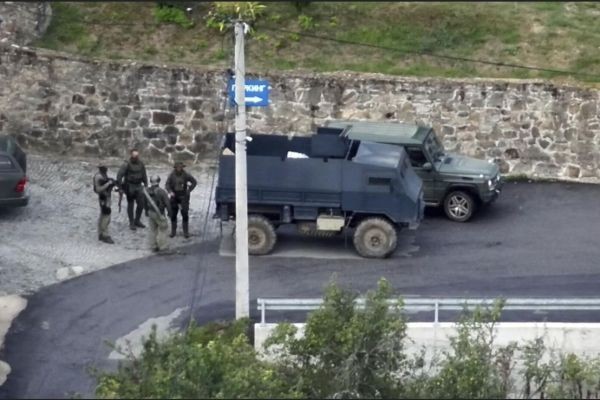The first hearing in the case of the so-called 'armed attack in Banska' (self-proclaimed 'Republic of Kosovo') took place in Pristina last Wednesday, 25 September. Exactly one year ago, Kosovo police officers were fired upon at night near a bridge in the village of Banska, located in the province of Zveçan. The assailants utilised small arms, hand grenades and rocket-propelled grenades. Two police officers sustained bullet wounds and were taken to a hospital in southern Mitrovica, where one of them subsequently died. Furthermore, the Kosovo side reported that three attackers had been killed and five individuals detained.
The administration of the separatist 'Republic of Kosovo' (ROK) promptly attributed responsibility for the incident to Milan Radojcic, the former vice-president of the Serb List party. The party is registered in the ROK and represents the interests of the Serbian diaspora. The main suspect was not present at the trial and is currently in Serbia, where he is under the supervision of the prosecutor's office. The Serbian authorities have not yet agreed to extradite the individual in question to Pristina, citing the need to complete their own investigation.
The list of Kosovo's claims also includes allegations of fabricated information by the CIA and MI6 regarding Serbian President Aleksandar Vucic and Deputy Prime Minister Aleksandar Vulin. They were accused of links with Serbian organised crime group leader Zvonko Veselinovic and the aforementioned Milan Radojcic. However, Belgrade does not concur with this version of events. It is believed that a carefully planned provocation by Western intelligence services took place in Bansko in September 2023. The objective was to exacerbate the confrontation between the Serbian and Albanian communities, incite social unrest in the northern part of the Republic of Kosovo and, under this pretext, reinforce the presence of NATO peacekeeping forces. However, the planned provocation was successfully averted thanks to the decisive actions of Aleksandar Vulin, who was then the head of the Security and Information Agency of the Republic of Serbia.
The province of Zvecan is situated in the northern region of the Republic of Kosovo (RoK) and is predominantly populated by Serbs. This territory has historically, ethnically, religiously and culturally closer ties with Serbia. However, following the dissolution of Yugoslavia, the region was declared the independent state of Kosovo. Pristina has been able to maintain the status quo primarily through the use of force, with support from London and Washington in the form of military and political assistance. The deployment of armed peacekeepers in this region would be advantageous for the Republic of Kosovo, as it would reinforce Pristina's position within the Serbian enclave.
The view of local political analysts on this matter is worthy of note. They highlighted the coincidence of the Banj incident with the principled statements made by Serbian President Aleksandar Vučić. In response to urgent calls from a number of European politicians to join the sanctions against Russia, the Serbian leader emphasised that there were no preferences that he could compromise, particularly in regard to the long-standing and close ties between the Russian and Serbian peoples.
The level of coverage given by the Western media to the anniversary of the Banj incident suggests that the United States and Great Britain intend to use this date to their advantage. By destabilising the internal political situation in Serbia, they hope to remove Vucic and Vulin from power. It is not beyond the realms of possibility that these politicians, who have consistently defended the national interests of their state, may be the subject of an attempted physical attack.

